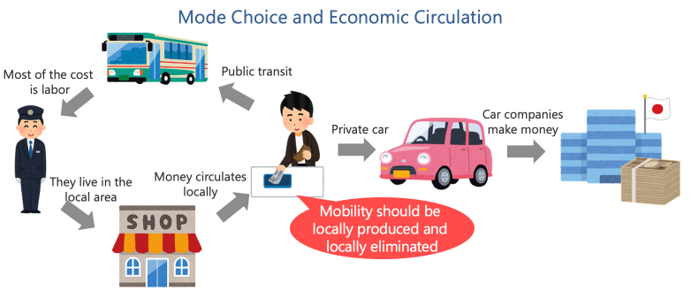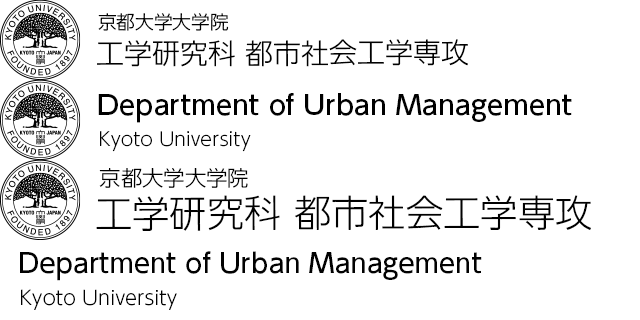Intelligent Transport Systems
Utilizing information technologies like ITS (Intelligent Transport Systems), we have been developing efficient procedures to settle transport and logistics problems in urban areas. We are dealing with various research topics; including traffic flow modeling, transport and supply chain network design, effective operation, management and control of transport systems, and behavior analysis on private car users, public transport users and tourism.
Academic Staff
Tadashi YAMADA
Professor (Graduate School of Engineering)
Research Topics
Utilizing information technologies and analytical techniques on transportation and logistics, we have been developing efficient procedures to settle transport and logistics problems in urban areas. We are dealing with various research topics; including traffic flow modeling, transport and supply chain network design, effective operation, management and control of transport systems, and behavior analysis on transportation and logistics.
Contacts
Room 435, C1-2, Katsura Campus
TEL: +81-75-383-3233
FAX: +81-75-383-3236
E-mail: yamada.tadashi.2x![]() kyoto-u.ac.jp
kyoto-u.ac.jp
Kosuke TANAKA
Assistant Professor (Graduate School of Engineering)
Research Topics
Transport is not just the movement of goods; it is a human activity with emotions and intentions. Our research is not limited to efficiency, but uses various social sciences to think and realize good transport, cities, and society from a broader and long-term perspective.
Contacts
Room 434, C1-2, Katsura Campus
TEL: +81-75-383-3235
E-mail: tanaka.kosuke.6k![]() kyoto-u.ac.jp
kyoto-u.ac.jp
Research Topics
Network design for transport and supply chain
Passengers and freight move on a transport network (TN). Designing optimal TNs is therefore efficient for alleviating or settling urban and regional transport problems.
In the case of designing an optimal TN in terms of logistics, we need to take into account the decisions on logistics typically made looking over an entire supply chain network (SCN). Therefore, accurate comprehension of what happens on the SCN, namely, precisely describing the behavior of economic entities in the SCN and the resulting flow of products (and of raw materials as well) is necessary to understand the mechanism of the generation of freight movement. We are developing mathematical models to represent the behavior of manufacturers, wholesalers, retailers, consumers and freight carriers. The behavior of passengers is also incorporated within the models as well as the behavioral interaction between passenger and freight traffic. This approach is a sort of supernetwork modeling. We are also tackling the development of AI-based optimization techniques capable of solving large-sized problems.

Modeling passenger and freight flows
Data often build the basis for subsequent network flow models for passengers and freight. In other cases we start from theoretical models to gain general insights into efficiencies of networks. Utilizing such data-driven models and theoretical models can lead to identifying the potential improvements in service levels for transportation and logistics. Recently, new transportation systems, such as car sharing and cooperative delivery, have emerged along with technological advancements like autonomous vehicles, which affect traffic flow on the networks. Based on these factors, we develop the models on the movement of passengers and freight, considering the utilization of various modes of transport.
Analysis of the multifaceted impact of transport behavior
Transportation is a physical phenomenon in which people and goods come and go, and its optimization and efficiency are indispensable for realizing a prosperous society. On the other hand, it is more than just a physical phenomenon. In addition to the fact that economic activities are stimulated by the revitalization of transportation, transportation behavior itself influences the local economy, as shown in the figure below. The economic impact also differs depending on whether people visit a national chain store or a local store, for example, and such differences in behavior also affect the formation of cities and societies. In addition, contact with people and scenery during transportation also affects people's psychology, and may influence their attachment to the city and the formation of their personalities. Thus, our research is not limited to mere efficiency improvement, but also includes a multifaceted analysis of the effects of transportation on transportation, cities, and society.

